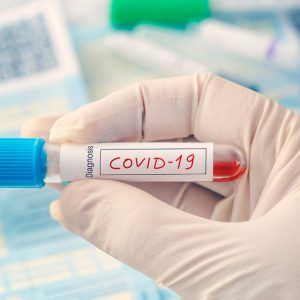The rapid spread of coronavirus around the world and the increase in the number of deaths is making everyone panic. One primary reason for the panic is the lack of awareness about the way the virus spreads, the incubation period, the symptoms, the mortality rate, etc. People confusing common cold symptoms with coronavirus is adding to the panic.
Most platforms are sharing the news on the positive cases across the world, the number of deaths, and the precautions one can take to prevent the infection. However, in this article, we try to explore the questions that you will love to find answers for. We will explore the various symptoms, the incubation period, and the duration it takes for the symptoms to develop and so on.
The Key Symptoms:

Most people are aware that the key symptoms include a 37.8°C or 100.04 F fever and dry cough. However, not many people know how long it takes for thee symptoms to appear after being infected. That’s because it’s hard to know when exactly someone came in contact with COVID 19 patients.
According to the World Health Organization (WHO), most people have symptoms like fever, dry cough, tiredness, shortness of breath, and loss of smell, in the first few weeks. Around 1 out of 10 people reported having a severe case of diarrhea two to three days before the symptoms develop.
The Incubation Period:
The incubation period starts when the person comes in contact with a COVID-19 patient. You could also catch the infection from the body fluids of an infected person. Healthcare providers are still struggling to place a fixed incubation period for the coronavirus. The difficulty in finding exactly when one was infected makes it impossible to count the incubation period.
However, the average incubation period for the virus to show symptoms has been around 5.1 days, while over 97 % of people developed symptoms within 11 days. Besides this, the fact that every person’s body and the immune system acts differently to a virus attack also plays a key role.
What to do if you have symptoms?

The first thing to do if you notice that you have a fever is to self-isolate yourself for four to seven days. During this one week time, if what you have is normal fever, it will subside. While the cough might still last for a week or two, you can selectively leave your self-isolation. However, make sure you maintain ample social distance and follow hygienic practices while you cough. Your chances of infecting others are relatively low at this point.
If the fever continues after seven days and the cough persists, you should contact your health care provider and request for a COVID-19 test. You should continue to stay in self-isolation as the probability of you infecting others is high in this stage.
A week after the first sign of infection, you might develop shortness of breath. This might happen anytime around 7-10 days after the incubation period. It is a result of the virus severely impacting your lungs that cause inflammation. There is thus a shortage of blood and oxygen supply from your heart to the blood vessels. While the symptoms make take a few days or weeks to develop, once it sets in, it worsens real soon.
Is this fatal?

The fatality of the coronavirus infection depends upon the immune system of the individual. If reports are to go by, at least 4 out of 5 people who test positive for COVID-19 have a complete recovery within two to four weeks. However, it might take a little longer if you are severely affected by the disease.
The risk group
While the common belief is that only children and older adults are likely to be affected by the virus, it’s not true. Coronavirus can affect people of all age groups. It is the fact that children and older adults have a weaker immune system that makes them vulnerable. So, remember that you are not immune to the infection and might fall sick if you do not exercise caution.
The final words of caution
- Avoid crowded places.
- Isolate yourself if you came in contact with someone who is COVID-19 positive.
- Follow the government’s guidelines and report yourself to a healthcare professional if you have symptoms.
- Ensure everyone you live with and met, isolates themself for 14 days if you develop symptoms.





